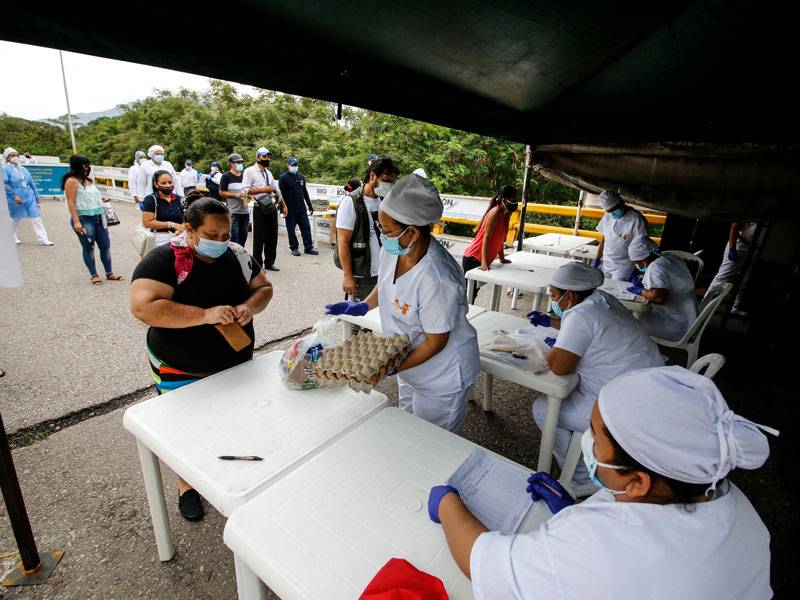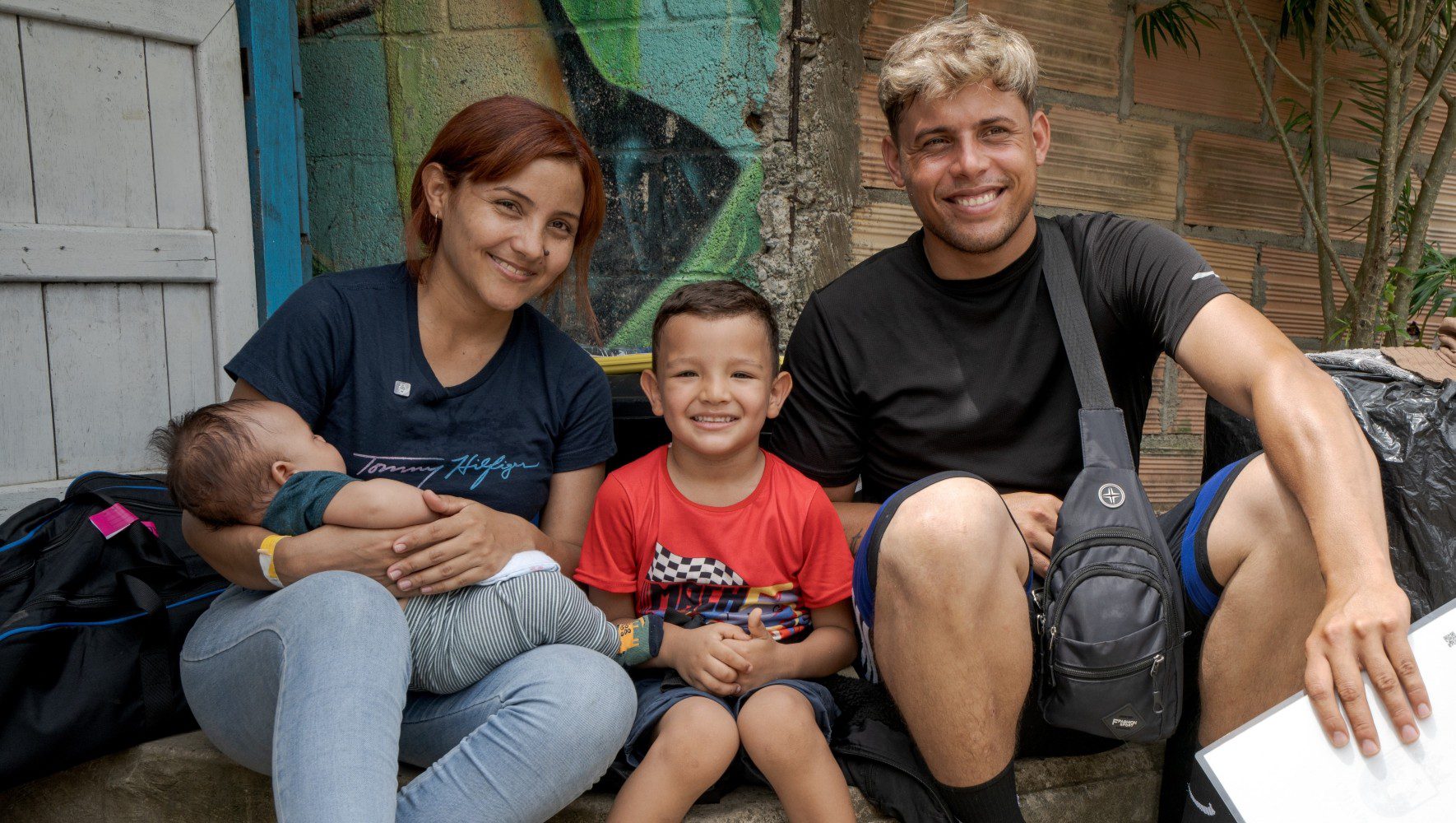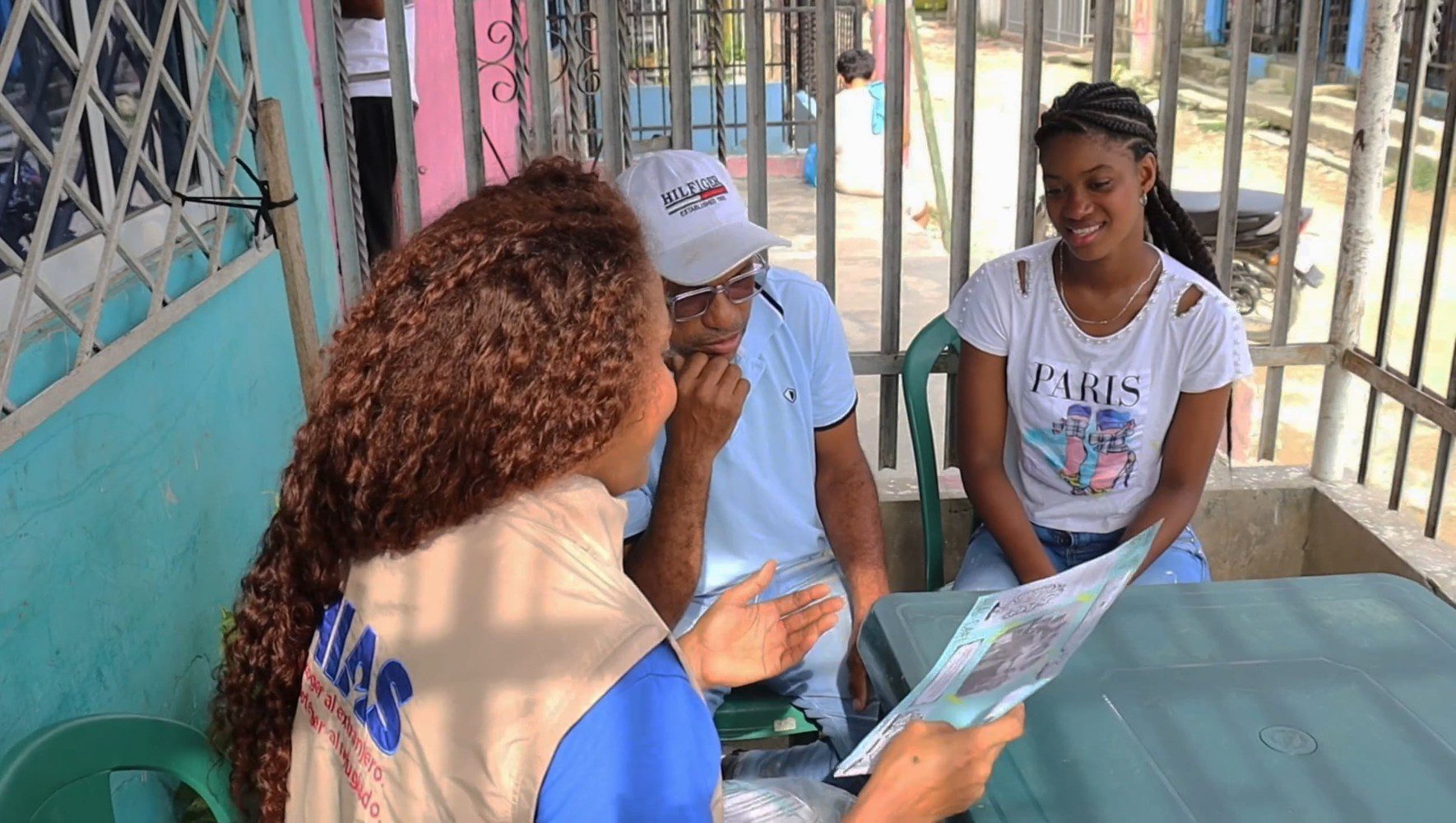Colombia's Bold Gesture to Help Venezuelan Refugees
By Sharon Samber, HIAS.org
Mar 16, 2021

Workers with the Colombian Ministry of Health give food to a Venezuelan woman at the Simon Bolivar international bridge in Cucuta, on the Colombian border with Venezuela, on March 13, 2021.
(Schneyder Mendoza/AFP via Getty Images)
At the beginning of this month, the president of Colombia signed an order to help address the biggest refugee crisis in the Western Hemisphere.
President Iván Duque had recently announced his intent to allow 1.7 million Venezuelans to legally remain in Colombia for 10 years, an act United Nations High Commissioner for Refugees Filippo Grandi called one of the most important humanitarian gestures in decades. HIAS Colombia, which began operations in 2019, understands both the importance of granting Venezuelans temporary protected status, or TPS, and the reality behind it.
“We are setting an example for the rest of the world,” said HIAS Colombia’s country director, Camilo Ramirez. “I feel really proud that we are sending a message to the international community.”
That said, Ramirez pointed out the difficulties of the new mechanism. While those with TPS can apply for resident visas in Colombia, he explained, they have no direct path to citizenship. Even if TPS solves the issue of Venezuelans’ immediate legal status, it is not a durable solution.
Ramirez is also concerned it will be hard to fully implement TPS and that the program will face challenges, particularly in more rural areas. Colombia has never dealt with a refugee situation anywhere near the scale of the Venezuelan crisis, and the infrastructure needed to manage the TPS program is simply not in place, according to Ramirez.
“It’s not a magical potion,” he said. “It will take time.”
Duque’s policy change comes as the situation in Venezuela continues to deteriorate. According to an ENCOVI 2019-2020 study, 96 percent of Venezuelans live in poverty. Since 2015, more than five million people have fled to neighboring countries and beyond, and the pandemic has caused even more instability.
The new TPS policy might prove unpopular among Colombians, and it comes as other South American countries are closing their borders because of the pandemic and experiencing anti-immigrant sentiment. Duque reasoned Colombia is already bearing the fiscal burden of hosting refugees and that granting Venezuelans TPS might prompt the international community to offer support.
HIAS Colombia, which has offices in Barranquilla and Bogotá, focuses on the prevention and response to gender-based violence, and its economic programs include in-kind assistance; accelerated business incubation; financial literacy; and vocational training. HIAS Colombia also provides temporary housing through a partnership with Airbnb Open Homes.
Ramirez believes that in any migration context one of the main problems is documentation; if TPS does manage to solve the documentation problem, that might help a number of immigration issues. So, despite his caution about the policy change, Ramirez sounds optimistic.
“HIAS can help with working toward long-term solutions,” he said. “We are providing something for the future this way, and people won’t just be dependent. Venezuelans can change their reality.”


